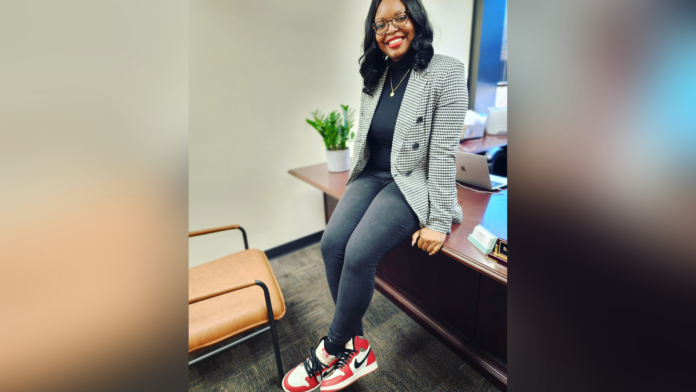Dr. Brittany Prioleau is passionate about helping others achieve wellness through holistic and multicultural approaches. With her ongoing research, the Mercer University faculty member is working to incorporate innovative and integrative practices into the field of mental health counseling, while also educating the next generation of counselors.
An assistant professor of counseling in the College of Professional Advancement, Dr. Prioleau holds bachelor’s degrees in experimental psychology and Spanish, a Master of Education in clinical mental health counseling, and a Ph.D. in counselor education and supervision. Drawn to the “helping professions,” she has a background in career and clinical counseling and previously served as a bilingual school counselor. She is a licensed clinical mental health counselor, a national certified counselor and a certified integrative mental health professional.
She decided to pursue her Ph.D. so that she could teach future counselors, and the position on Mercer’s Atlanta campus allowed her to do that while continuing to advance her research interests. Among the courses she leads are counseling theories, social and cultural issues in counseling, and social justice leadership and advocacy.
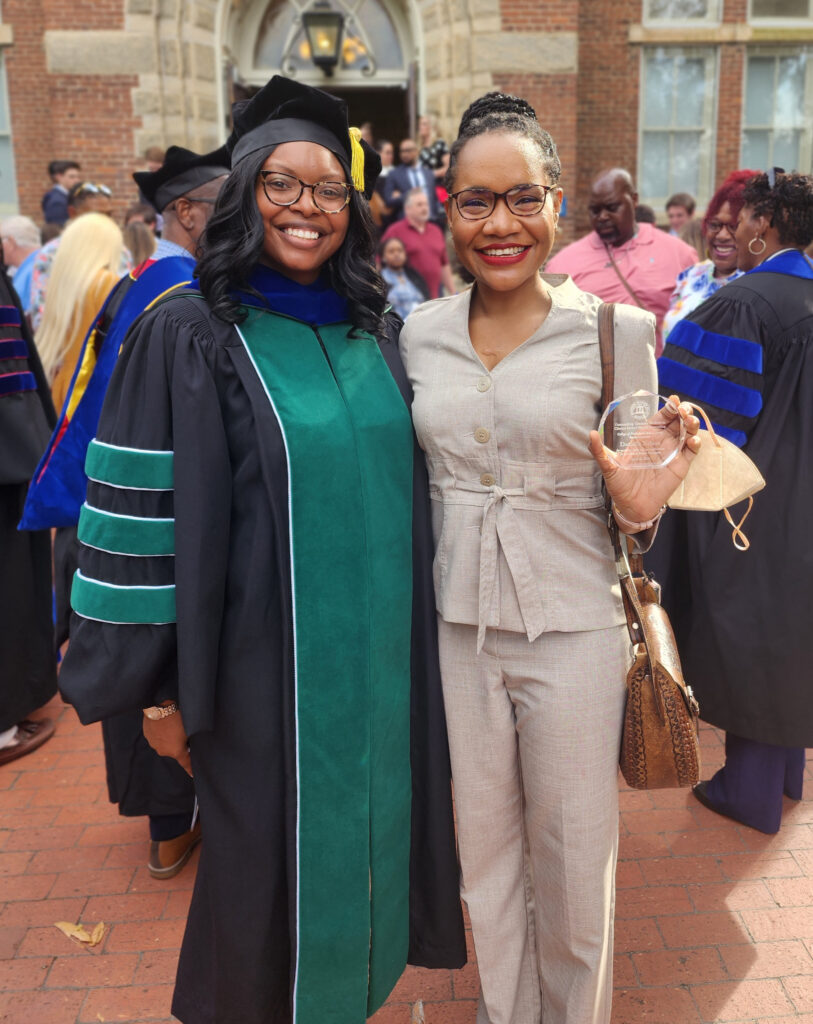
“I told myself that I wouldn’t go into academia unless I found a position that was targeted toward the populations I wanted to work with,” said Dr. Prioleau, who joined Mercer’s faculty in 2021. “I know Atlanta has a very diverse population and communities I want to serve.”
Using a holistic framework, she looks at how all aspects of a person’s health — including physical and spiritual — affect his or her mental health and wellness. Dr. Prioleau specializes in trauma-informed care practice, particularly in historically underserved populations and urban school settings, and multicultural approaches to wellness. Through her research and teaching, she aims to equip students, schools and communities with the tools to better serve and care for underrepresented groups.
“When we look at these trauma-informed approaches, it doesn’t just focus on the individual, it looks at issues from an ecological perspective,” Dr. Prioleau said. “How are these communities being impacted by structural systems? It takes a social justice worldview to make sure we are providing the best care for clients. We have to take community and culturally relevant practices into consideration.”
Dr. Prioleau created a course at Mercer this summer called “Multicultural Approach to Wellness Counseling,” and she runs a University lab called the Multicultural Wellness Enhancement Research Lab. Currently, the lab is housed within the counseling program and involves six counseling students, but Dr. Prioleau would like for it to eventually become a “wellness hub” with research opportunities for students from a variety of Mercer departments and colleges.
“We have to get students involved in this work, and that’s really important to me, that mentorship aspect, and that’s why I created this lab,” she said.
Dr. Prioleau is the faculty adviser for Mercer’s Mu Upsilon Alpha chapter of counseling honor society Chi Sigma Iota. The chapter is an arm of the multicultural lab that offers students additional opportunities to get involved in research and activities. Every year, the chapter hosts a wellness workshop with guest speakers that allows attendees to learn more about meditation and mindfulness.
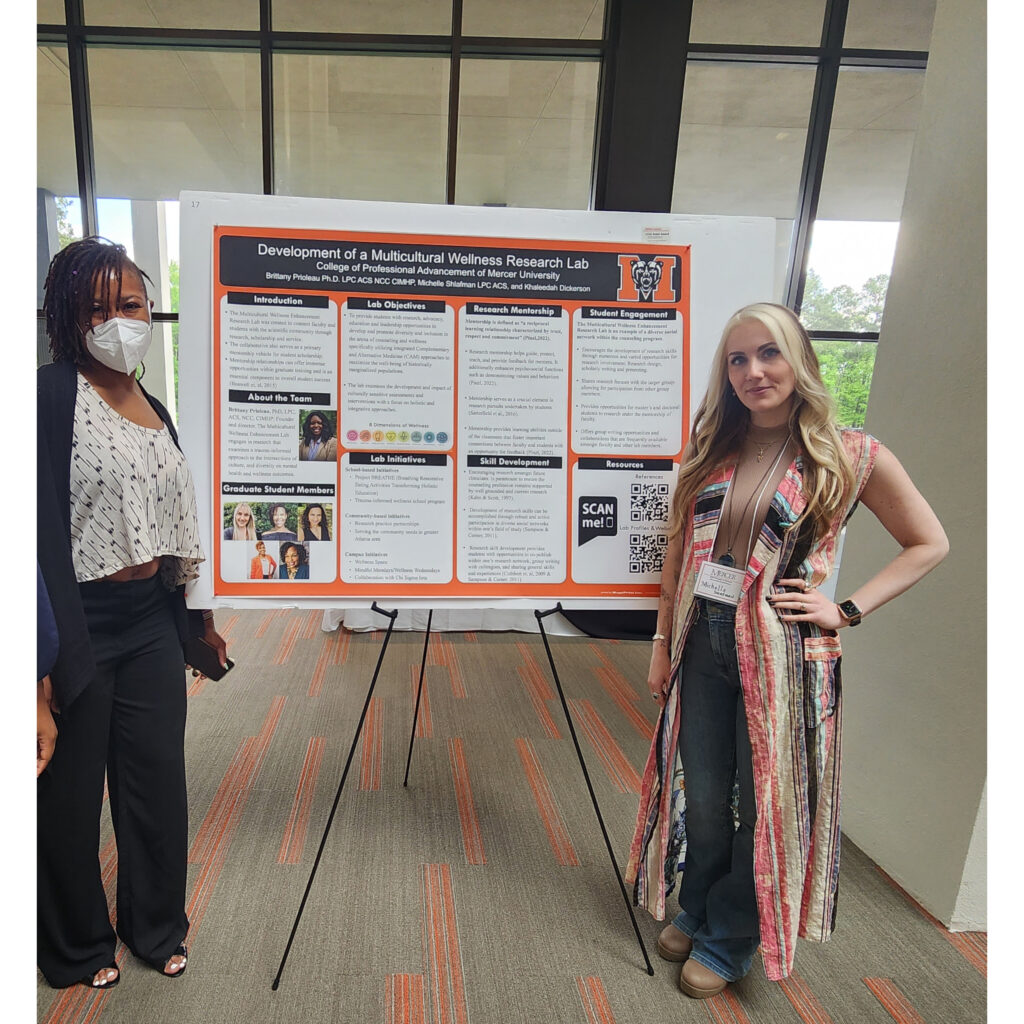
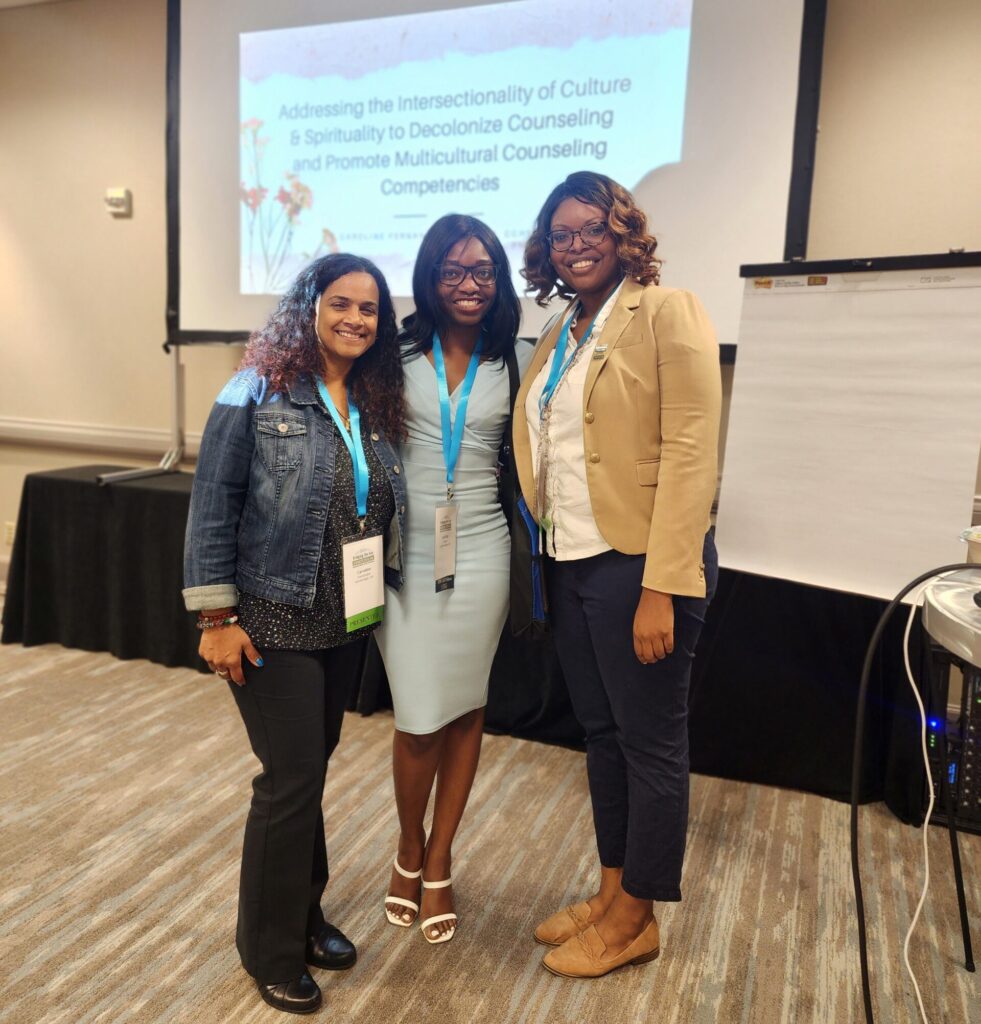
As part of her overarching research on multicultural wellness, Dr. Prioleau is working on a pilot trauma-informed holistic wellness program for historically marginalized youth in urban school settings. The project aims to positively impact mental health and well-being through mindfulness, meditation and nutritional aspects.
She has received a SEED grant from the Provost’s Office to conduct a feasibility study in a Gwinnett County school during the 2023-24 academic year. She is working on a grant application for the National Institutes of Health’s National Center for Complementary and Integrative Health so that she can expand upon the project.
In addition, she will lead a study abroad trip to Bali in July 2024 that will focus on wellness, spirituality and integrative practices.
Dr. Prioleau’s lab at Mercer is also studying psychedelic-assisted mental health therapy, which she developed an interest in about four years ago. She said she wants to help create public awareness about psychedelic medicine, which has long been stigmatized but has entered a “renaissance” of research in recent years.
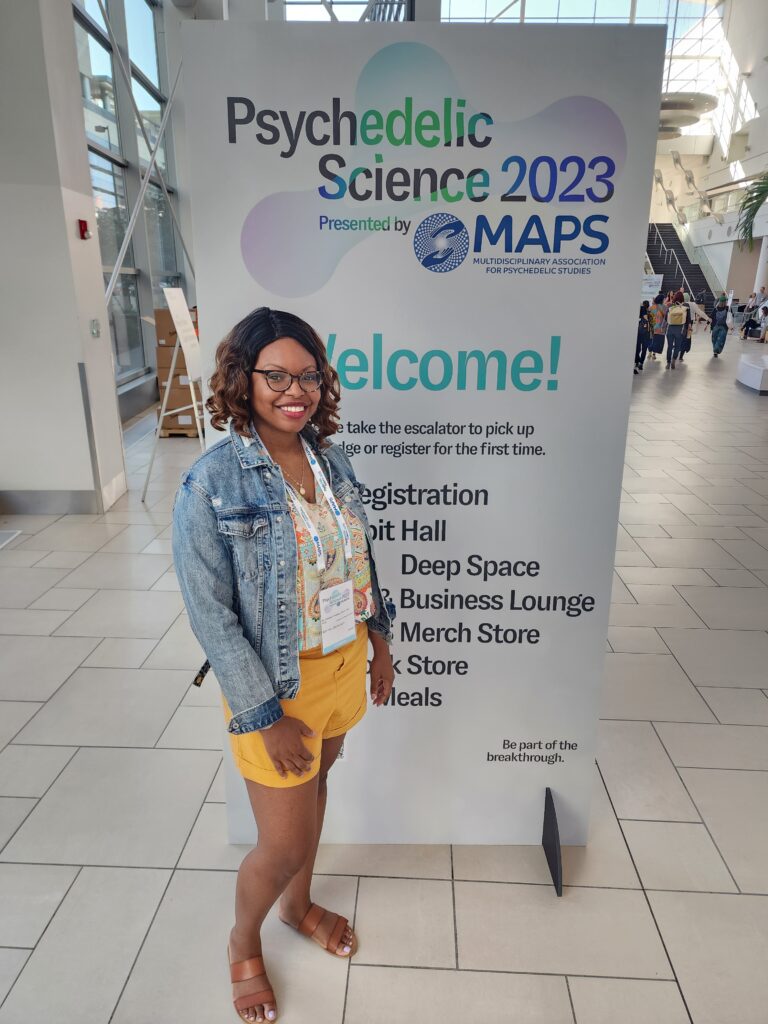
Some psychedelic substances are showing potential as alternative mental health treatments. For example, the Food and Drug Administration is currently conducting clinical trials on MDMA, also known as “ecstasy” or “molly,” as a treatment for post-traumatic stress disorder. This treatment is still in the investigative stages but is one step closer to FDA approval.
Dr. Prioleau has been chosen and accepted as a health equity leader in the Multidisciplinary Association for Psychedelic Studies’ MDMA-Assisted Therapy Education Program for the fall.
Psychedelic-assisted therapy is big in social work and psychiatry right now but doesn’t have a strong voice in counseling yet, Dr. Prioleau said. She hopes to help change that. She is looking for ways to create programming for Mercer students in psychedelic-assisted therapy, and she has shared her research on psychedelic-assisted wellness counseling at conferences.
This summer, Dr. Prioleau attended the Psychedelic Science conference in Denver with leaders and researchers from around the world. She was one of 25 Momentum Scholars selected from a pool of 10,000 applicants to receive funding from the conference’s sponsor, the Multidisciplinary Association for Psychedelic Studies. She attended several courses related to integrating psychedelics into therapy and met some of the biggest names in the field.
“This was what they’re calling the ‘largest psychedelic gathering in history,’” she said. “It was a chance for us to come together, share knowledge. We shared stories and our goals for this upcoming renaissance that we know is going to take the mental health field by force. It was great for me to find out who else is doing this work, so I could connect with them. I gained a wealth of knowledge of background information pertaining to psychedelics and where we are and where we plan to go.”

